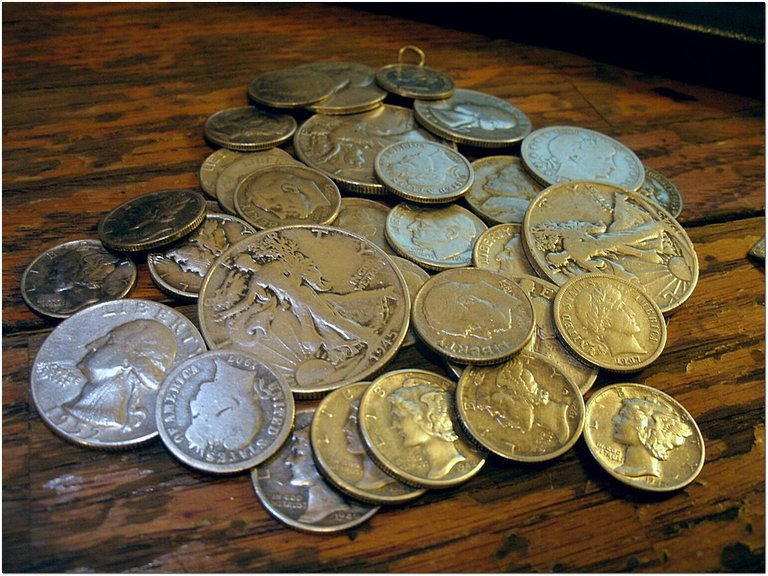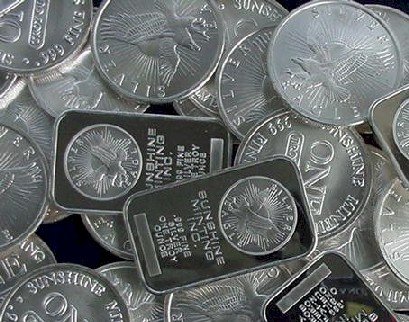Introduction Silver Coins and Investing - Part II
Although there are several ways to invest in silver, including purchasing silver bars and rounds, purchasing silver coins is the most common way. Among the many possibilities available are 90% U.S. silver coins produced in 1964 and earlier (often known as junk silver coins), silver bullion coins with a silver fineness of.999 or above, and collector or rare coins that are less prone to changes in the price of silver. Here are some more alternatives for silver coins.
Part II continued from Part I: Introduction Silver Coins and Investing

Should You Purchase Bullion, Rare Silver Coins, or Junk Silver?
One of the most crucial decisions you'll have to make is whether to buy junk silver, bullion, rare silver coins, a combination of two or more, or none of the above.
Since collector and rare coins have numismatic value, you might prefer to invest in junk silver or bullion coins if you're wanting to buy silver primarily as a hedge against inflation. This means that rather than the silver value, the worth of the coins is mostly determined by their collectability and current market demand. While bullion silver coins can be obtained directly from the Mint or any of the aforementioned sources, 90% silver coins and numismatic silver coins are often purchased through coin dealers, individual sellers, or coin collectors.
Bullion silver coins, like American silver eagles, are a great option if you wish to convert your IRA into silver.
In the end, a variety of considerations, including as premiums, your anticipated holding duration, and where and how you will store the silver, will determine which silver coin is best for investment purposes.
Due to the following possible dangers, collecting rare silver coins is frequently viewed as a strategy for collectors and speculators:
- When compared to bullion coins, coin dealer premiums on collector silver coins are substantially higher.
- Due to the IRS's classification of all precious metals, including bullion, as "collectibles," there are no tax benefits to purchasing rare silver coins.
- You can have trouble selling your collectible silver coins because there might not be enough purchasers for that specific coin (s)
- The market value is simpler to determine when buying and selling 90% silver coins or silver bullion because it is mostly dependent on the current spot price of silver on the commodities market.
This is not to argue that your best course of action is not to buy in rare silver coins. However, it's best to first think about your major aims and decide whether your primary objective is to buy silver coins as a hedge against inflation, currency depreciation, and economic crises or whether your main goal is to buy silver coins for their rarity and historical value. Numismatic coin investing can be a little riskier, but it also has more upside potential if you buy them at the right time and at the right price.

Purchasing Silver Coins Safely
Silver coins can be purchased in a variety of ways, including online, in coin shops, at estate sales, and from coin dealers. If you want to invest in bullion, you can buy a variety of silver bullion coins straight from the Royal Canadian Mint or the United States Mint. The American Silver Eagle and the Canadian Silver Maple Leaf are the two most well-known and recognizable one ounce silver coins.
The most common technique to get junk silver is to purchase a bag that weighs 715 ounces of pure silver and has a face value of $1,000. You'll typically pay less per ounce when purchasing junk silver coins as opposed to government-minted bullion coins, which is a benefit. This implies that the most affordable option to purchase high-quality government-issued silver coins is to purchase junk silver coins.
If you'd rather, you can also purchase junk silver in smaller quantities, like a tube of coins. Remember that $1.50, made up of dime, quarter, and half dollar coins, is equivalent to roughly an ounce of silver. This will enable you to calculate your cost per ounce. Half dollars are the most common junk currency, followed by quarters and dime.
No matter where you purchase silver coins, make sure you conduct thorough research. Make sure you know who you are working with by checking with the Better Business Bureau, reading reputable forums, and other methods. Verify coin prices that include premiums or fees to be sure you're getting a fair deal.
Tax Consequences of Purchasing Silver Coins
Finally, before making an investment in silver, it pays to have a basic understanding of tax implications. The IRS classifies gold, silver, and other precious metals as "collectibles," along with stamps, antiques, and other items. Gains from the sale of an investment in collectibles that you've held for more than a year are taxed at a higher rate than those from the sale of mutual funds, stocks, or bonds. The gain is a short-term capital gain if you hold your investment for a year or less and is taxed at your regular income rate.
You must first calculate your profit or loss before deciding how selling silver coins would affect your taxes. This involves figuring out the cost basis, which takes into account your purchase price, dealer fees, storage fees, and any other ancillary costs you could have racked up. You must ascertain the duration of your ownership of the silver.
A particular reminder: If you invest in silver bullion using an IRA or tax-deferred account, selling silver coins typically has no tax repercussions because the funds are not taxed until they are withdrawn. However, the IRS only accepts American Eagle silver coins and other premium silver bullion coins. If you don't adhere to IRS regulations, it may be deemed an early distribution, in which case you'll be subject to regular tax plus a 10% penalty.